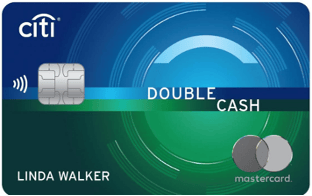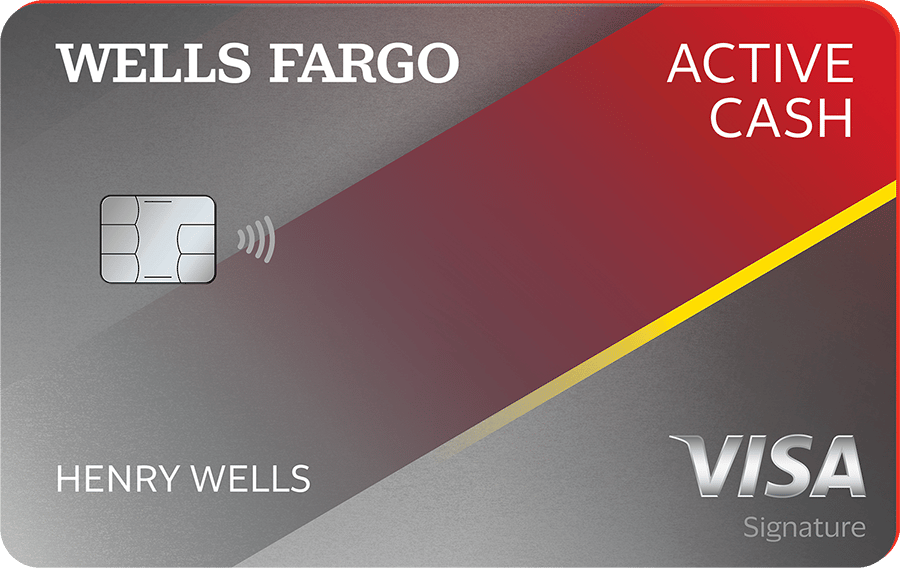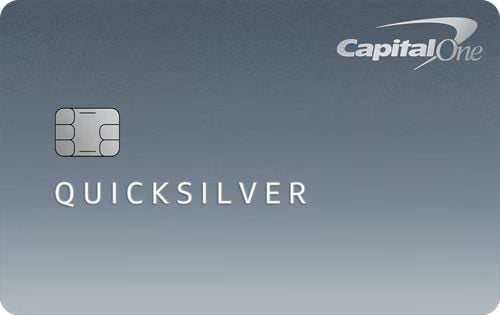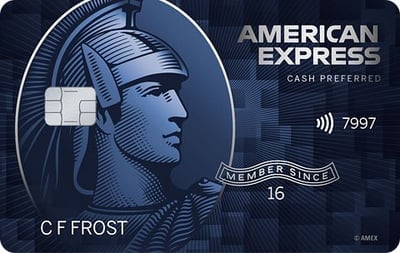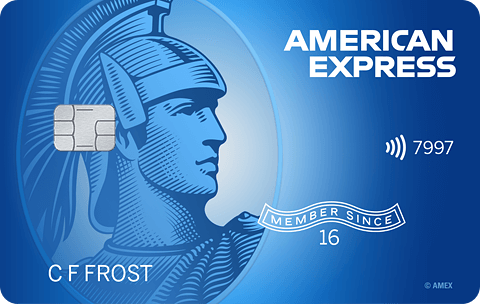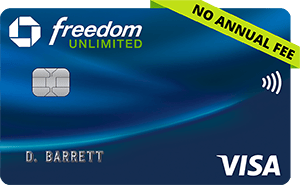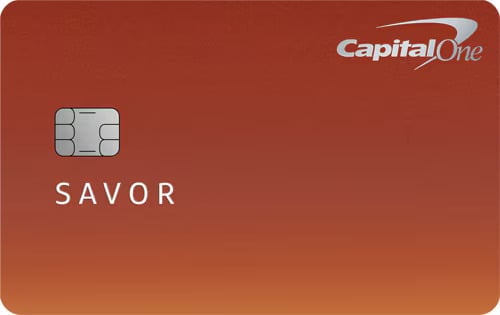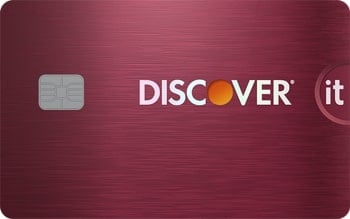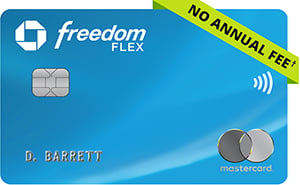How Do Cash-Back Credit Cards Work?
Cash-back credit cards earn a percentage of the price of a purchase and it adds up over time.

Many or all of the products on this page are from partners who compensate us when you click to or take an action on their website, but this does not influence our evaluations or ratings. Our opinions are our own.
Cash-back credit cards range from straightforward to complex, but each can be rewarding. Every time you use a cash-back credit card to make a qualifying purchase in store or online, it earns a percentage of the amount paid. That means if you spend $500 on a card that earns 1.5% cash back, you'll earn $7.50 back in rewards.
The cash back is typically issued at the end of the statement period or billing cycle and you can redeem it as a deposit into a bank account, statement credit, check, gift card, and potentially other options, depending on the credit card.
Cash-back credit cards come in different forms. Some credit cards earn a flat rate across all purchases, meaning they'll earn the same rewards rate on every purchase you make no matter the category. Other cash-back credit cards earn elevated rewards in some popular spending categories and a lower base rate on everything else.
Here’s an in-depth look at how cash-back credit cards work.
How cash back works on credit cards
When you use your cash-back credit card, you’re essentially earning pennies as a percentage of each purchase. It may not feel like much at first, but it adds up over time.
As long as your account is open and in good standing, you'll earn cash back on all eligible purchases. But some transactions don't qualify, including:
Cash advances.
Balance transfers.
Cash-like transactions (like purchases of foreign currency, money orders or cryptocurrency).
Lottery tickets.
Gambling-related purchases.
Purchases made through a third party like a digital wallet or wireless card reader may also not earn rewards if the technology can't provide enough information about the transaction to classify it as eligible for cash back.
Depending on the type of credit card, cash back may be easy to earn or you may have to jump through a few hoops to earn a better rate. Different credit cards issue cash back in the following ways:
A flat rate on all purchases
A flat-rate cash-back credit card can offer 1.5% or more in cash back on all purchases. It's typically the simplest way to earn cash back, but it may not be as straightforward on some cards. The $0-annual-fee Citi Double Cash® Card, for example, earns 2% back on all purchases: 1% when you buy and 1% when you pay the bill. It's still fairly simple to earn cash back since the bill will be due. Other cards like the $0-annual-fee Wells Fargo Active Cash® Card offer more straightforward cash back. This card earns an unlimited 2% cash back on all purchases. Here's a selection of popular flat-rate cards:
2% cash back on all purchases — 1% when you buy something and 1% when you pay it off.
2% cash back on all purchases.
1.5% cash back on all purchases.
1.5% cash back on all purchases.
(Bank of America Preferred Rewards® members can earn a higher rate.)
Elevated rewards in common everyday categories
Other cash-back credit cards may offer higher rewards in certain categories — like gas, dining, streaming services or groceries, for example — and a lower base rewards rate (usually 1% but sometimes higher) on everything else. Some cards may also set a limit on the amount of spending eligible for bonus rewards. For instance, the $0-annual-fee Blue Cash Everyday® Card from American Express offers 3% back at U.S. supermarkets (on up to $6,000 spent per year), 3% back at U.S. gas stations (on up to $6,000 spent per year), 3% cash back on U.S. online retail purchases (on up to $6,000 spent per year), and 1% back on all other eligible purchases. Terms apply. Here's a selection of cards that work like this:
• 6% at U.S. supermarkets, on up to $6,000 a year in spending.
• 6% on select U.S. streaming subscriptions.
• 3% at U.S. gas stations.
• 3% on transit.
• 1% on other purchases.*
• Terms apply (see rates and fees).
• 3% at U.S. supermarkets, on up to $6,000 a year in spending.
• 3% at U.S. gas stations, on up to $6,000 a year in spending.
• 3% on U.S. online retail purchases, on up to $6,000 a year in spending.
• 1% on other purchases.*
• Terms apply (see rates and fees).
• 5% on travel booked through Chase.
• 3% at restaurants.
• 3% at drugstores.
• 1.5% on other purchases.
• 3% at restaurants.
• 3% at grocery stores.
• 3% on entertainment.
• 3% on popular streaming services.
• 1% on other purchases.
Cash back in customized spending categories
Some cash-back credit cards earn rewards in a few high-spending categories from a list of several popular options that are likely to match your spending. The $0-annual-fee Bank of America® Customized Cash Rewards credit card offers 3% back on a category of your choice from a list of six options and 2% back on grocery stores and wholesale clubs for the first $2,500 of combined bonus category/grocery store/wholesale club spending per quarter. After hitting that threshold, you’ll earn 1% back. Purchases outside of these categories also earn 1% back. Spending categories include gas, online shopping, dining, travel, drugstores and home improvement and furnishings.
Another example is the $0-annual-fee Citi Custom Cash® Card, which earns 5% cash back on up to $500 spent in your highest spend category per billing cycle from a list of eligible options and 1% back on all other purchases. This card’s list of eligible reward categories is a bit longer and includes grocery stores, restaurants, gas stations, streaming services, drugstores, home improvement stores, fitness clubs, select travel, select transit and live entertainment.

Bonus cash back in rotating categories
A cash-back rate as high as 5% in common spending categories is possible to earn with a bit of maintenance. The $0-annual-fee Discover it® Cash Back offers 5% back in rotating quarterly categories on up to $1,500 in purchases each quarter with activation and 1% back on everything else. Bonus categories include such things as restaurants, grocery stores and gas stations. The categories on these cards can hit or miss since they may not always match your spending.
Your memory will have to be sharp with these options or you'll have to set reminders to stay on top of categories as they change. Forgetting to activate categories will leave you with a 1% base rate. It's also important to keep categories top of mind to strategically snag the higher rate on planned purchases.
Here's a selection of popular cards with rotating or customized categories:
• 5% in quarterly categories that you activate, on up to $1,500 per quarter in category spending.
• 1% on other purchases.
• 5% in quarterly categories that you activate, on up to $1,500 per quarter in category spending.
• 5% on travel booked through Chase.
• 3% at restaurants.
• 3% at drugstores.
• 1% on other purchases.
• 3% in a category you choose from a list of 6 options. (Categories: gas/EV charging; online shopping; dining; travel; drugstores; or home improvement and furnishings.)
• 2% at grocery stores.
• 2% at wholesale clubs.
(3% and 2% rewards limited to $2,500 per quarter in combined spending across the categories.)
• 1% on other purchases.
• 5% in the eligible category where you spend the most money each billing cycle, on up to $500 spent per cycle. (Categories: grocery stores; restaurants; gas stations; streaming services; drugstores; home improvement stores; fitness clubs; select travel; select transit; or live entertainment.)
• 1% on other purchases.
Want to maximize your rewards? Try a coupling strategy: Use a 5% cash-back credit card for rotating bonus category purchases and a 2% cash-back credit card for different purchases.
Ways to redeem cash back
It’s important to read the terms and conditions to make the most of cash-back rewards. Some credit cards allow cash-back redemptions once you’ve earned a certain amount — typically $25. Other credit cards don’t impose a restriction.
Once you’re ready to redeem rewards, cash back can be used to fund a bank account, pad an emergency fund, cover a purchase or shave a few dollars off of the credit card bill. Redemption options vary by credit card, but they may include a deposit into an eligible bank account, a check, statement credit, a gift card, merchandise or purchases covered upon checking out at PayPal or Amazon. For the statement credit option, note that you can’t apply cash-back rewards toward the minimum amount due. For non-cash-back redemptions, read terms carefully to ensure rewards don't lose value.
Rewards may expire if you have an inactive account over a certain amount of months, depending on the credit card’s terms. But, beyond inactivity, rewards rarely have an expiration date.
Find the right credit card for you.
Whether you want to pay less interest or earn more rewards, the right card's out there. Just answer a few questions and we'll narrow the search for you.






